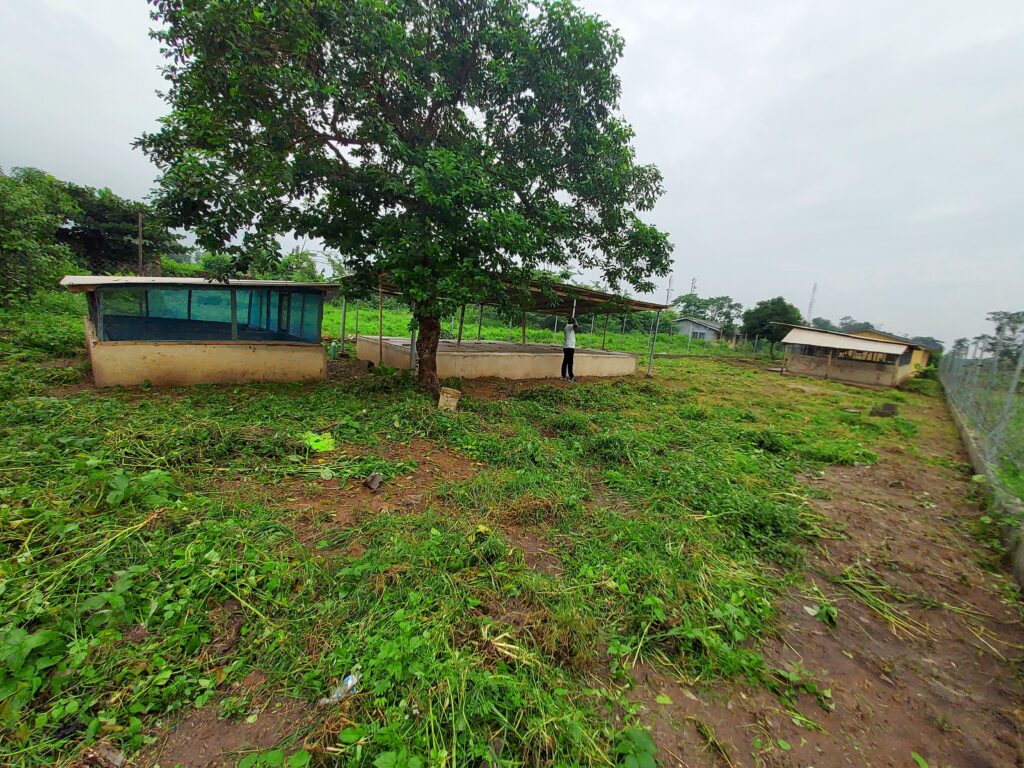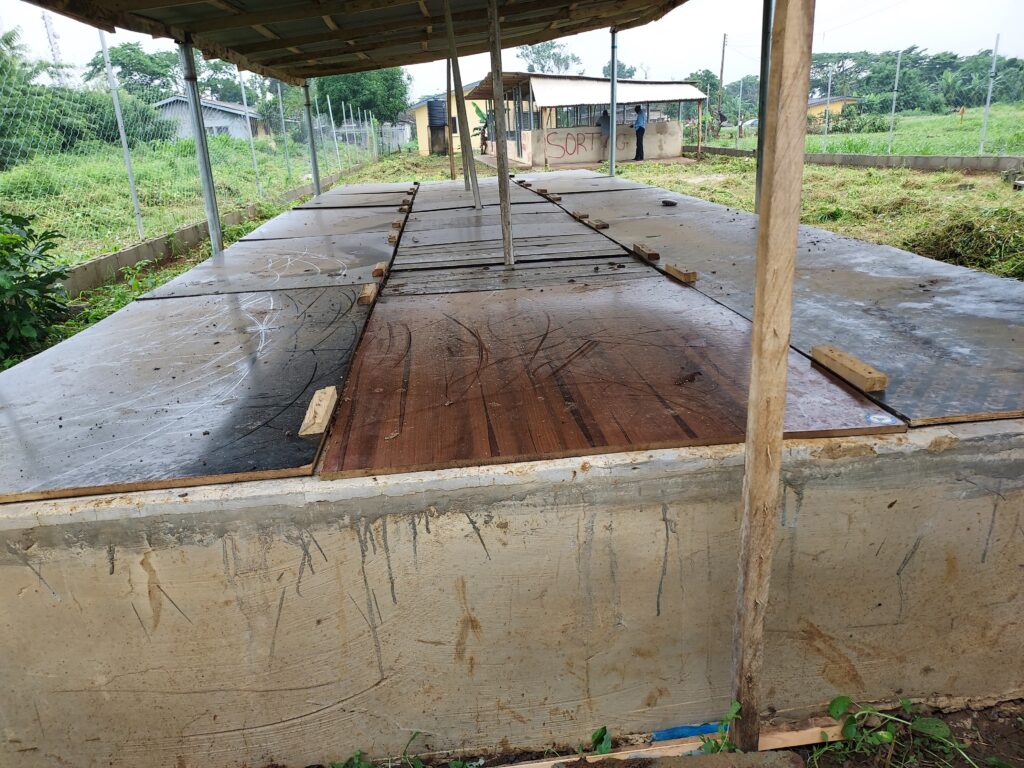…From food scraps to fertile farms, a bold new project in Epe Local Government Area shows how grassroots solutions in waste management are tackling climate change, creating jobs, and reshaping Lagos’ environmental future.
By Bunmi Yekini

In the quiet, fast-growing community of Epe in Lagos, a revolution in waste management is taking root, one compost pile at a time. As global temperatures rise and Nigeria grapples with mounting environmental challenges, this agrarian and semi-urban community is embracing a climate-smart approach that turns everyday organic waste into opportunity. At the heart of this transformation is a groundbreaking project focused on drastically reducing methane emissions, one of the most potent greenhouse gases, by rethinking how the community handles its trash.
From Dumpsites to Solutions: A Local Climate Win
For years, Epe’s waste management challenges have mirrored those of many Nigerian towns: open dumpsites, poor collection systems, and a dangerous reliance on landfilling organic waste. These practices generate massive amounts of methane as food scraps, agricultural by-products, and other organic materials rot in open air.
Lagos alone produces more than 13,000 metric tons of waste daily, with over 50% classified as organic waste, according to a 2023 report by the Lagos State Waste Management Authority (LAWMA).
Now, with a bold community-driven initiative, Epe is rewriting that narrative.
A Material Recovery Facility (MRF) is under construction in the LGA, an infrastructure that will not only manage over 260 tons of waste annually but also convert biodegradable waste into compost and Black Soldier Fly larvae for animal feed, creating a circular economy that benefits both the environment and local livelihoods.
“This is not just about waste,” says Melody Enyinnaya, the project’s coordinator. “It’s about air quality, food security, job creation, and reducing greenhouse gases. It’s about solving multiple problems with one solution.”
A New Model for Urban-Agro Communities
What makes the Epe initiative unique is its holistic approach to methane reduction through five integrated strategies:
Diverting organic waste from dumpsites
Promoting compost use in farming
Establishing a zero-waste ambassador network
Integrating waste pickers into the formal economy
Building policy and community alliances to promote sustainable change
Through its Zero Waste Farmers Network, the project educates farmers to adopt agroecological practices using organic compost instead of petroleum-based fertilizers. The aim is to reduce methane emissions from chemical-heavy farms while improving soil health and crop yield.
Baba Kazeem, a vegetable farmer in Epe, said “We’ve been using chemical fertilizers for years, but the land isn’t what it used to be, If this compost works and it’s affordable, we’re ready to shift.”
The Hidden Climate Culprit: Methane
Under the Global Methane Pledge, Nigeria pledged to reduce methane emissions by 60% by 2031 but
implementation at grassroots level remains a challenge. Initiatives like the MAMRN project in Epe could bridge that gap, delivering scalable, replicable models that bring climate action down to earth.
Methane has more than 80 times the warming power of carbon dioxide over a 20-year period, according to the United Nations Environment Programme (UNEP). Waste, especially food and organic matter, is a major contributor to these emissions in cities like Lagos.

By repurposing waste instead of burning or dumping it, Epe’s project is targeting methane at the source.
“This is a climate solution hiding in plain sight,” said Dr. Chukwudi Emeribe, a baseline researcher on the project. “If replicated across Lagos, this model could eliminate thousands of tons of methane annually.”
Empowering Waste Pickers, Elevating Communities
Often overlooked but critical to urban sanitation, waste pickers in Epe are being brought into the fold, not as laborers but as partners. They will receive training, safety gear, and access to a new hub at the MRF where they can sort materials and earn incentives.
“We’ve picked from the streets all our lives. Now we can do it better, safer, and even teach others,” said Amina Yusuf, one of the informal recyclers who attended the project’s launch workshop. “This gives us dignity.”
Policy Shift from Waste-to-Energy to Zero Waste
Interestingly, the project emerged as a counter-response to the Lagos State government’s recent Memorandum of Understanding with foreign firms to build waste-to-energy plants in Epe, a technology that environmentalists argue produces harmful emissions and discourages recycling.
“This initiative offers a real alternative,” said Venath Titigbe, Assistant Director of Campaigns and Administration. “Rather than burning waste, we’re converting it. Rather than destroying soil, we’re rebuilding it. Rather than excluding communities, we’re empowering them.”
Community Ownership and Lasting Change
At the project’s recent inception workshop, attended by local government officials, farmers, religious leaders, market women, and youth groups, the mood was one of cautious optimism.
“The problem of waste and pollution affects everyone,” said Hon. Olayinka Ganiyu, Vice-Chairman of Epe LGA. “This initiative aligns with our development goals, and we are committed to supporting it.”
Workshops, zero-waste market campaigns, and even radio jingles are in the pipeline to further spread awareness and build a waste-wise culture.
The Bigger Picture
As Nigeria contends with rising flooding, desertification, and food insecurity, all linked to climate change, Epe’s example signals a vital shift: the power of grassroots innovation in environmental governance.
“We are proving that climate action doesn’t have to come from the top,” said Melody Enyinnaya. “It can start from the community and ripple outward.”
If successful, the Epe model could be scaled across Lagos and other states, offering a roadmap for transforming waste into wealth while meeting Nigeria’s climate commitments under the Paris Agreement.
As residents of Epe prepare to reap the first harvests of compost-enriched farms, there is a growing belief that climate solutions are not distant, foreign, or abstract, they are local, practical, and already in motion.
